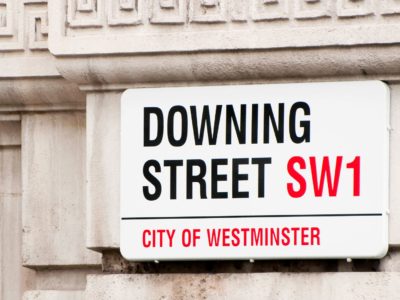The Bank of England (BoE) has opted to keep interest rates steady at 0.75 per cent today, following a meeting by the Monetary Policy Committee (MPC) which was watched closely by the markets.
As recently as this week, some had expected that the MPC would opt for a rate cut, but following a raft of better-than-expected economic indicators, the MPC’s nine members voted seven to two for rates to stay as they were.
However, despite an apparent improvement in economic growth and a bounce-back in the UK housing market since the general election, inflation remains below its two per cent target, and economic growth is likely to rise at a modest pace over the coming years.
Transition period for BoE
The decision to hold interest rates steady this week comes in the midst of a transitional period for the BoE – Dr Mark Carney, who has been the BoE’s Governor since mid-2013, is leaving his position, to be succeeded by Andrew Bailey.
As well as bearing economic trends in mind, the MPC is highly likely to have refrained from any major policy decisions in this crucial time, in order to allow the new Governor to make his mark and implement policy as he sees fit.
This wait-and-see approach on interest rates prompted a strong reaction from the currency markets, with the pound jumping in value, above $1.30 against the US dollar, while the yield on short-term maturity government bonds.
Strength in the housing market
Continued strength in the housing market may have been a crucial factor which tipped the scales in favour of no change in interest rates today – house prices rose 1.9 per cent annually in January, according to Nationwide.
This was the fastest price growth seen since late 2018, when the housing market and the UK economy at large started to show signs of a marked slowdown, as Brexit uncertainty sapped confidence.
Policy makers at the BoE could be signalling a preference to avoid cutting rates, in an effort to avoid over-stimulating the housing market, and by extension, the broader economy.
However, inflation remains low, having been persistently below the BoE’s two per cent target since mid-2019. The BoE’s latest forecast suggests that it will remain so for several months to come.
This could create something of a dilemma for the MPC – posing the question – should they start moving towards higher rates, if the economy takes off, or should they slash rates if the economy appears to be falling into a deflationary cycle?
In the meantime, unemployment remains low and steady, while real incomes continue to rise. In turn, this could continue to support demand in the housing market. Whatever the BoE decides to do next, it all depends on Dr Carney’s successor, and the direction his MPC decides to go in the coming weeks and months.























DOESN’T matter what the BoE does.
Lenders would just use lower BBR to increase their margins.
Only those with tracker mortgages will win out of lower BoE rate.
Lenders will continue with their ridiculous teaser rates and fees.
The Consumer won’t see much effect of a lower BoE rate.
SVR are still at horrendous 5 and 6%
So basically the same as they were at the time of the CC.
When will lenders learn that people want long term rates.
Say 35 years at 3%
That would get the market moving.
But allow IO residential mortgages with NO requirement for ANY repayment vehicle.